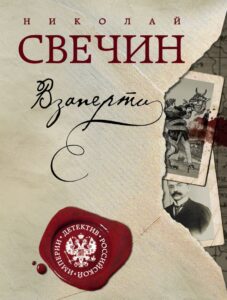Описание книги
About the product End of 1911. Stolypin was killed, a new minister, Makarov, appeared in the Ministry of Internal Affairs. He immediately disliked State Councilor Lykov. Makarov is a strict legalist, and the detective often breaks the law in the interests of the cause. At this point, Lykov got involved in something other than his own business, he wants to open the eyes of the government to British intrigues to strangle the Maikop oil fields. During the arrest of Mokhov’s gang, the state councilor pretty much dented the leader. Makarov reprimanded him harshly. A few days later, the detective summoned Mokhov for interrogation, after which he died in prison. The inmates unanimously assert that Lykov severely beat the criminal and that he died from the beatings … And before the detective had time to recover, he himself ended up behind bars. Deprived of ranks, orders and nobility for what he did not do. Friends are hastily trying to rescue the former state councilor. Meanwhile, there are many people in prison who want to settle scores with him … The protagonist of all works, the plot of which dates back to the late 19th — early 20th centuries, is Alexei Lykov. In addition to this fictional hero, historical characters are introduced into the action of novels and stories — civilian officials and military ranks, real subjects of the Russian Empire of those years. All books are based on carefully studied and carefully selected historical materials. “The book by Nikolai Svechin is beautifully written. But I would not say that this is the new Akunin. Although the presence of the king of the modern Russian detective is felt there. In the main character, the detective Alexei Lykov, I discovered a certain symbiosis of Fandorin and Romanov — two heroes of different Akunin series. Alexey Lykov is such a Nizhny Novgorod superman of the second half of the 19th century who combines Fandorin’s mind and Romanov’s innocence. The protagonist Svechin quite organically (as far as such an artificial genre as a detective story allows) grows out of Nizhny Novgorod, the trading capital of Russia in the 19th century. Lykov — a participant in the Russian-Turkish war, wounded, came to the Nizhny Novgorod police to continue serving his homeland. And immediately he got into trouble, from which he miraculously comes out alive … in the rank of deputy head of the Nizhny Novgorod investigation. The story is fantastic and, of course, invented through and through. But you believe in it, because it is not the hero himself who captures, but the place and time in which the hero acts. Svechin’s novel belongs to the «ethno-detective» genre. It is not the detective but the ethnographic component that is important in it ”. — Pavel Basinsky Svechin’s books are a synthesis of a retro detective and popular local history. You can call this subgenre «regionalist retro detective» (and the alliteration will turn out good). The action always takes place in the author’s native Nizhny Novgorod and its environs. Most of the stories, as far as I understand, are taken from life (that is, from the documents), and therefore, in the plot aspect, Svechin is not very expressive. The language is painstakingly stylized. There are, however, sometimes almost Kolyadin’s pearls: “I wrote to the Emperor! Uselessly. I received favor for a responsible civil position … ”, but there are very few such obvious blunders. But the philologist will pick up a handful of small fleas here. The word «one» cannot in any way refer to the Yarmonkin brothers, since it denotes female persons. The word “circled” is a folk-poetic word, long outdated, and in the 19th century it could be used only by epics, but not by peasants in everyday speech, and so on. The atmosphere is pleasant. Prominent gentlemen with surnames like Petrovo-Solovovo — and even (I’m not lying!) Golenishchev-Kutuzov-Tolstoy — gravely drink «Shustovsky» and eat frozen persimmon. Abstract End of 1911. Stolypin was killed, a new minister, Makarov, appeared in the Ministry of Internal Affairs. He immediately disliked State Councilor Lykov. Makarov is a strict legalist, and the detective often violates the laws in the interests of the case. At this point, Lykov got involved in something other than his own business, he wants to open the eyes of the government to the British intrigues to strangle the Maikop oil fields. During the arrest of Mokhov’s gang, the state councilor pretty much dented the leader. Makarov reprimanded him harshly. A few days later, the detective summoned Mokhov for interrogation, after which he died in prison. The inmates unanimously assert that Lykov severely beat the criminal, and he died of the beatings … And before the detective had time to recover, he himself ended up behind bars. Deprived of ranks, orders and nobility for what he did not do. Friends are hastily trying to rescue the former state councilor. Meanwhile, there are many people in prison who want to settle scores with him….
FAQ
